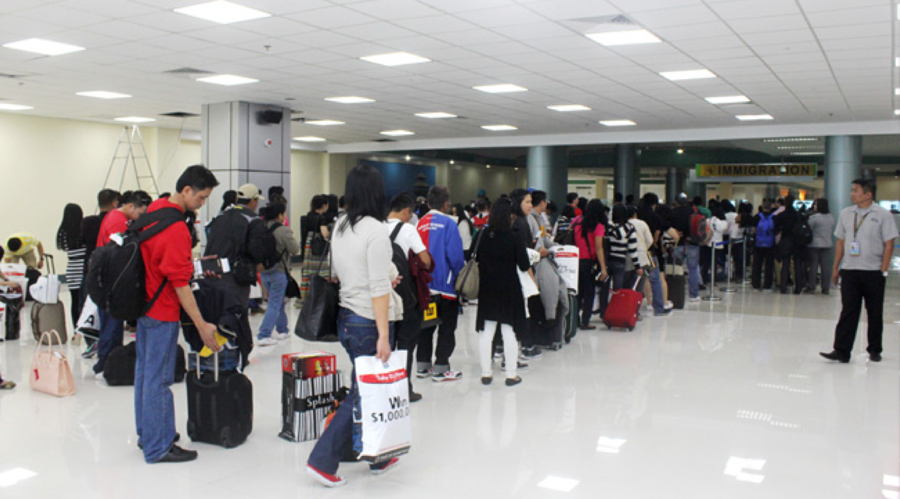
A Nationalist People’s Coalition (NPC) stalwart has urged the government to improve educational and work opportunities for women after a global anti-modern slavery organization raised a red flag on the labor conditions of female Overseas Filipino Workers (OFWs).
Valenzuela City Congressman Win Gatchalian made the statement as the Walk Free Foundation reported in its 2014 Global Slavery Index that half of the Filipino women working abroad are unskilled and were being employed as domestic workers, cleaners and other service-related jobs, which have the highest risks for modern slavery.
“The country needs to invest more in human development and create human value for the global Filipino, especially women. Education is the key in preventing overseas Filipino workers from ending up as modern slaves abroad,” said Gatchalian, whose advocacy includes the rights and welfare of OFWs.
Gatchalian deplored that most of these so-called “modern slaves” are employed as either domestic helpers or sex workers because of their lack of college education that should enable them to find more decent jobs.
“Migrant Filipinas workers who are high school dropouts or were unable to enter college are most vulnerable to modern slavery. Education can reverse this trend so we can deploy high-value professionals working abroad, “said Gatchalian, a majority member for the House committees on basic education and culture and on higher and technical education.
“The government also needs to create more job opportunities for women with families so they need not go abroad for work just to perform their duty to help in the household’s finances. The government can do so by stepping up its efforts in drawing foreign direct investments,” he added.
The Walk Free Foundation further reported: “Filipino women are often subjected to forced labor, have no access to their passport, have limited rights, if any, and experience sexual and physical abuse by their employer. Filipino workers are also vulnerable to forced labor and involuntary servitude in the sex industry throughout Asia and the Middle East.
Based on the Index, modern slavery “involves one person possessing or controlling another person in such as a way as to significantly deprive that person of their individual liberty, with the intention of exploiting that person through their use, management, profit, transfer or disposal.”
According to the Philippine Statistics Authority (PSA), most female overseas Filipino workers are laborers and unskilled workers while most male OFWs are plant and machine operators and assemblers as well as trade and related workers.
The PSA also noted that there are more women (21.3 percent) who completed high school than men (20.1 percent). There are also more women whose highest educational attainment is college or higher (22.3 percent) than men (18.2 percent).
Despite these educational gains for women, their labor force participation rate is pegged at only 49.8 percent compared to men’s 78.1 percent.
There are 1.072 million female OFWs whose remittances totaled P53.450 billion, and 1.148 million male OFWs who sent P112.178 billion back home, based on 2012 Survey on Overseas Filipinos by the PSA- National Statistics Office (NSO).
“Even if you double the number of female OFWs to come up with P106.9 billion, their remittances will still be over P5 billion lower than those of the current number of male OFWs. This can be attributed to the kind of jobs given to our female OFWs,” said Gatchalian.
The Index estimated that there are 261,200 people in modern slavery in the Philippines. It ranked the Philippines as 103rd out of 167 countries, with a rating of BB after the government implemented measures such as increasing the protection for OFWs by building 15 multi-agency resource centers to assist workers in 36 countries with at least 20,000 OFWs. (Monica Cantilero)


